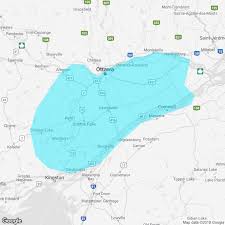
Introduction
Environment Canada plays a vital role in safeguarding the nation’s natural resources and informing Canadians about the environment and weather. As climate change becomes a pressing issue, the agency’s work in monitoring atmospheric conditions, water quality, and wildlife habitats has never been more relevant. With recent extreme weather events across the country, the importance of accurate climate data and forecasts provided by Environment Canada cannot be overstated.
Key Functions of Environment Canada
Environment Canada, officially known as Environment and Climate Change Canada (ECCC), serves multiple critical functions. Its primary responsibilities include:
- Weather Forecasting: The agency provides weather warnings and forecasts to keep Canadians safe from severe weather conditions.
- Environmental Protection: ECCC is involved in formulating regulations to protect water resources, air quality, and promote biodiversity.
- Climate Change Mitigation: The agency works to analyze and develop strategies to combat climate change, aligning with Canada’s commitments to reduce greenhouse gas emissions.
- Research and Monitoring: Ongoing research coupled with site surveillance is essential to understanding pollution levels and ecosystem health.
Recent Developments
In August 2023, Environment Canada warned of unprecedented wildfires in British Columbia, leading to the evacuation of several communities. The agency not only provided warnings but also collaborated with provincial authorities to coordinate firefighting efforts and gather data on air quality deterioration.
In a recent report published in September 2023, Environment Canada indicated that climate change is expected to increase the frequency of weather extremes across the country. This includes hotter summers, heavier rainfall, and increased flooding. The data underscores the need for community preparedness and adaptability to future environmental changes.
Looking Forward
As we continue to face the repercussions of climate change, the role of Environment Canada will likely evolve. The agency is expected to enhance predictive modeling and engage more with local communities to implement effective climate actions. Moreover, in response to growing public concern over environmental issues, ECCC aims to improve transparency and accessibility in its communications.
Conclusion
Environment Canada is an indispensable resource for understanding and responding to our ever-changing environment. Its ongoing efforts in weather forecasting, climate action, and environmental conservation are crucial for planning, policy-making, and ensuring public safety. For Canadians, staying informed about Environment Canada’s advisories and utilizing its resources can enhance awareness and preparedness while fostering a collective effort to protect our environment for future generations.



